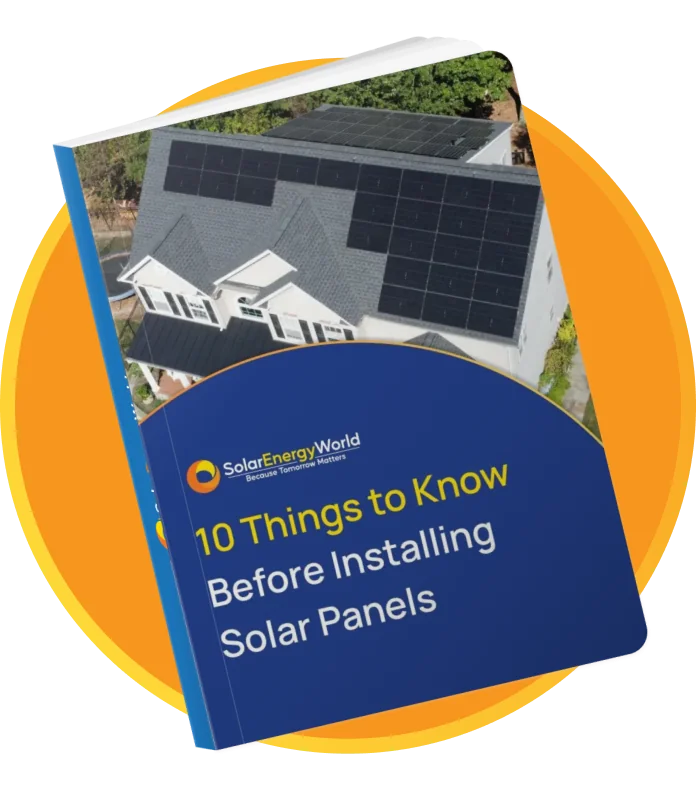Article
Thinking About Solar? 30% Federal Tax Credit Might End Sooner Than Expected

The 30% federal solar tax credit, officially known as the Residential Clean Energy Credit, has been a significant incentive for homeowners considering solar energy. This credit allows homeowners to deduct 30% of the cost of installing a solar energy system from their federal taxes. However, recent legislative developments may impact the availability of this credit.
Proposed Legislation Could Shorten the Credit Timeline
A new bill passed by the U.S. House of Representatives proposes ending the 30% residential solar tax credit (Section 25D of the U.S. Tax Code) on December 31, 2025—almost a decade ahead of its originally scheduled expiration in 2034. While this bill still requires approval from the Senate and the President to become law, the potential change introduces a sense of urgency for homeowners considering solar installations.
What This Means for Homeowners
Installation Timeline Is Critical
Solar projects typically take several months from initial consultation to final installation and inspection. To qualify for the current 30% tax credit, systems must be installed and operational by December 31, 2025.
Financial Incentives Could Be Reduced
For a typical $25,000 solar energy system, the 30% tax credit equates to a $7,500 reduction in federal tax liability, a substantial saving that could be lost if the credit expires early.
Changes May Impact Leases and PPAs
The proposed legislation may also affect third-party-owned residential solar systems, such as leases and power purchase agreements (PPAs), by eliminating the ability for companies to claim the commercial solar tax credit (Section 48E) for these installations.
Take Action Now to Maximize Your Benefits
Given the potential changes, homeowners interested in solar energy should consider initiating their projects as soon as possible to ensure installation is completed before the proposed deadline. Early action can help secure the existing financial incentives and avoid potential delays due to increased demand as the deadline approaches.
Our team is here to guide you through the process, from initial consultation to final installation, and will help ensure you maximize your benefits under the current tax credit structure.
Reach out today to learn more about informed solar purchasing or get started with a free solar estimate!

10 Things to Know Before Installing Solar Panels
Frequently Asked Questions About the Solar Tax Credit
Will projects built in 2025 still qualify for the 30% solar tax credit?
Yes. Based on the current legislation passed by the House, residential solar projects that are installed and passed inspection in 2025 will still qualify for the 30% federal solar tax credit. To remain eligible, the system must be considered “placed in service” before December 31, 2025.
What is the 30% solar tax credit?
The 30% federal tax credit for solar, officially named the Residential Clean Energy Credit, allows homeowners to receive a tax credit equal to 30% of the total cost of their solar energy system. For example, a $30,000 system would be eligible for a $9,000 credit on your federal taxes. This incentive has existed in various forms since the 1970s and was most recently extended through the Inflation Reduction Act of 2022.
Why are some people concerned about the tax credit going away in 2025?
Congress is currently reviewing a new bill that proposes to end the 30% solar tax credit (25D) at the end of 2025. If passed in its current form, the credit would no longer be available for residential solar systems installed in 2026 and beyond. Additionally, the bill would eliminate the 48E tax credit for third-party-owned systems like leases and PPAs, which could reduce affordability for some homeowners.
Is there a risk in waiting to see what happens with the legislation?
Yes. While it’s understandable to want policy certainty, waiting too long could impact your eligibility for the credit. Solar projects often take several weeks to complete, and if legislation passes mid-year, it could create a surge in demand that delays installations past the 2025 deadline. Starting your project early ensures you stay ahead of any bottlenecks and maximize your benefits.
Want a Free Solar Estimate?
Fill out the form to get started today.


